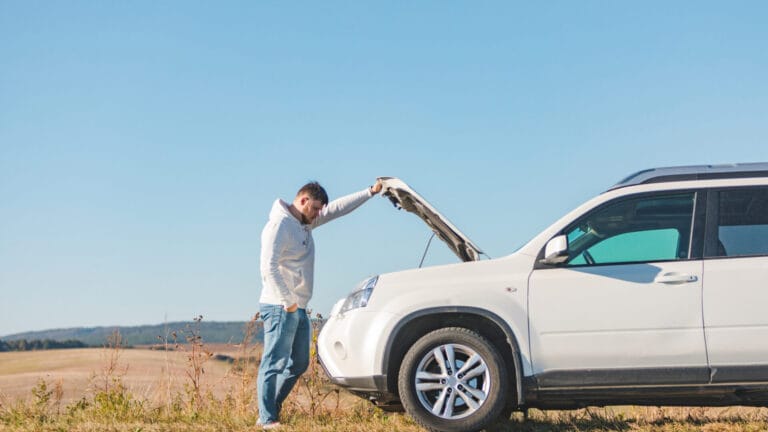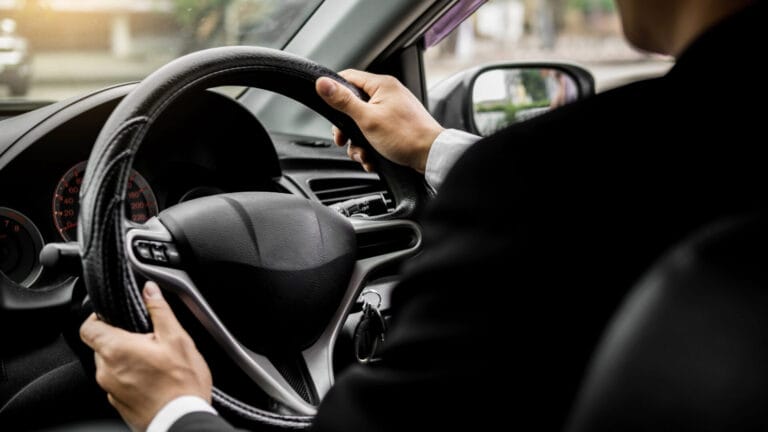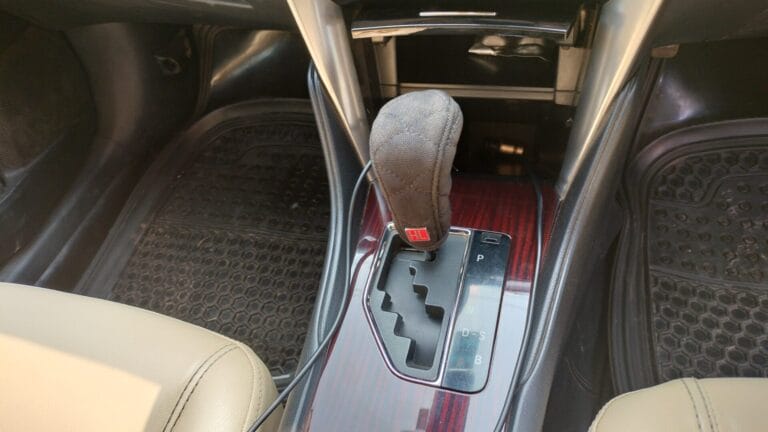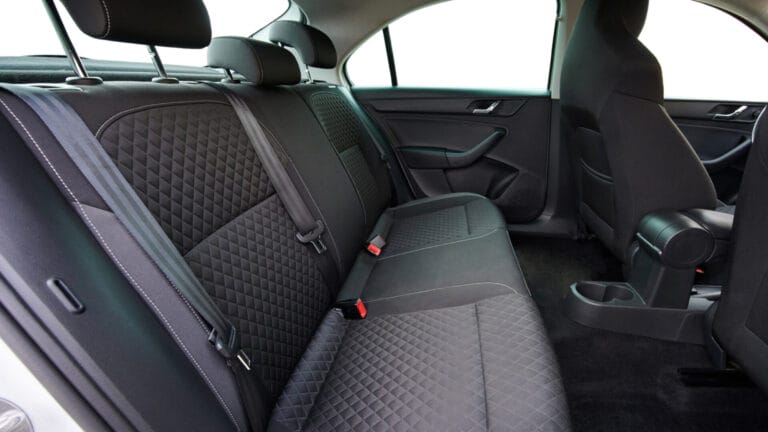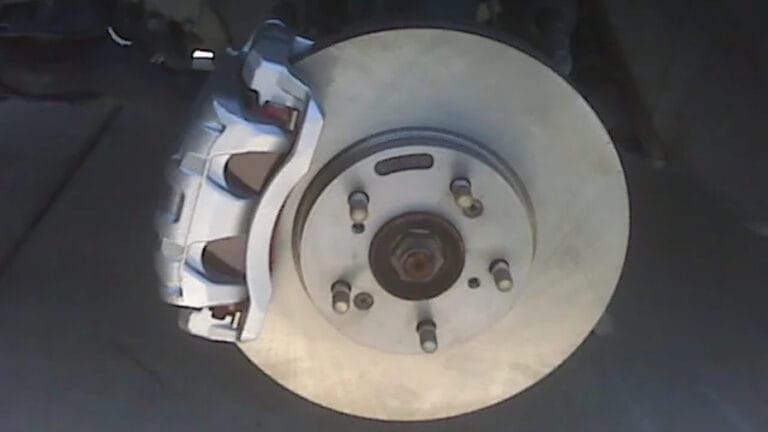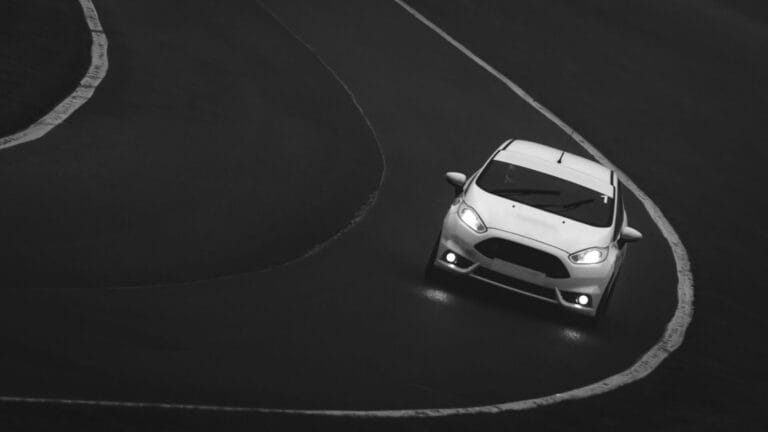Why Does My Car Rev Up When I Start It? 6 Common Reasons
Revving up the car intentionally might be aesthetic. But revving up the car to life with a noticeable surge in RPM while starting could be an issue. I bet a question peeked in your mind:
Why does my car rev up when I start it?
The car engine revs up at the start primarily due to a dirty throttle body and idle air control valve. However, if the throttle position sensor is not working or there is a leak in the vacuum hose, the engine RPM can reach way higher. Besides, if dust and debris clog the air filter, the engine can also rev up.
Whatever the reason is, I will explore them in vivid detail in this article.
So buckle up, and let’s get started.
What Is The Normal Engine Revolution When You Start A Car?
Speaking of the revolution, the normal amount at the start should be somewhere between 600-1200 RPM for a car engine. It depends on several factors.
Vehicle model, temperature, engine design, and size are all involved when determining the standard Revolution Per Minute (RPM). On that note, bigger engines have lower overall RPM, while the smaller ones are opposite when they initiate.
Why Does My Car Rev Up When I Start It?
A car engine’s rev-up can occur for multiple reasons. Some of which may turn out surprising for you. So, let’s go through them one by one.
1. Dirty Throttle Body
The air intake system of a car has one crucial component— the throttle body. It regulates the total amount of air intake. That affects the air and fuel mixture.
A clean throttle body opens and closes appropriately and controls the airflow. Over time, it gets dirty by carbon deposits, or grime can build up inside the throttle. As a result, airflow is reduced a lot.
This air impedance forces the engine to rev up and maintain necessary airflow. Besides, the dirty throttle body causes a lean mixture, and ECU increases the car engine RPM to prevent stalling. It mostly happens in cold weather.

Figure: A dirty throttle body
Fix
- Start off by disconnecting the air duct and electrical component from the throttle body.
- Use compressed air, paper towels, and throttle body cleaning spray to remove dirt and debris.
2. Filthy Idle Air Control Valve
IAC valves can cause your vehicle to rev up like a maniac if it’s clogged, especially at the start of the engine.
You see, the primary reason the Idle Air Control Valve exists is to supply and control the correct ratio of air and fuel to the engine. It is when it’s turned on but not accelerating. Basically, it is an idle state. Therefore, it is responsible for the engine’s idle RPM. It is located atop the throttle body and connects to the EMU.
Now, when a dirty idle control valve is present, the air supply is obstructed, and not enough damage to the engine. The result? The engine revs up to compensate for the low air supply.

Figure: Diagram of IAC valve position and connection to the EMU
Fix
- First, locate and take apart the air intake hose and filter box.
- Unclamp the IAC valve.
- Take a brush and start dislodging dirt and filth.
- Use detergents such as carburetor cleaners to wash the inside of the IACV.
- You can use a spray to clean the triangular face to remove all carbon residue.
3. Faulty Throttle Position Sensor
The Throttle Position Sensor (TPS) is responsible for a high rev in a car engine at the start. Now, this specific sensor has a decisive role to play. It checks out the position of the throttle plate in the throttle body.
After determining the location of the throttle plate, it sends out a signal to the ECU. The ECU then defines how much air and fuel should be supplied to the engine. A perfectly working TPS provides correct information, and the engine works as it should.
On the flip side, sometimes, the sensor incorrectly reads the position of the throttle plate, such that it is more open than it should be. The ECU thinks the accelerator is pressed more heavily than reality; hence, the engine revs up accordingly.
Fix:
Try resetting the throttle position sensor. To do that,
- Detach the negative terminal from the battery for at least five minutes, then reconnect it.
- Check if it solves the issue.
- If you have no luck, you need to replace it. It will cost you $200 to 250, including labor charge.
4. Vacuum Leak
Vacuum leak is a common reason for a high engine rev-up during initiation. That is because it disrupts the air and fuel mixture.
It is critical to maintain the correct ratio of air and fuel for the engine. The ECU or Engine Electronic Control Module (ECM) continuously monitors that and makes necessary adjustments to ensure efficient combustion.
A vacuum leak, in this instance, lets additional uncontrolled air enter the engine. This produces an incorrect air and fuel mix with too much air and little fuel. It’s also known as lean mixture.
Therefore, the engine revs up at the start to mitigate the excess air and prevent overheating and potential damage.
Fix
- First, you need to find the position of the leak. You can do this by tracking down the hissing noise on the vacuum hose.
- If there’s no sound, do a visual inspection. But a better way would be using a hand-operated vacuum pump.
- Once you find the position of the leak, patch it up or replace the hose. If you are not comfortable, get expert help.
5. Clogged Engine Air Filter
In the entire air intake system of a car engine, the air filter is important to the degree that any problem in this component will create numerous issues. The engine revs up at the start when it is clogged.
You know, after a good while, the engine air filter might become clogged due to debris and contaminants. As a result, airflow in the engine is hampered. The lack of air supply makes a rich mixture (more fuel, less air). The engine revs up at the start to make up for this air insufficiency.
Fix
There are two possible ways to sort out the issue of a clogged engine air filter. You can either clean the dust, debris, and gunk from and reuse it temporarily or replace the air filter. The latter is highly recommended.
To clean the air filter:
- Open the card hood and locate the air filter in the air filter box. Get help from the car’s manual if you need it.
- Take out the air filter by removing clips and screws that hold it in place.
- Use compressed air to remove any loose but dense dirt and debris. You can wash it in water if the dust is soiled.
To replace the unit, take out the old one and install the new air filter in its place. You can get one for $50 to $90. Price may vary due to car model and filter size.
Effects of High Revving on Your Car
Long time high revving of the engine can produce an advert effect on your car. If the engine continuously pushes itself to the upper RPM levels, it is not good.
Here’s a quick look at the effects of high engine rev on a car:
- High engine RPM will cause wear and tear on components like pistons, crankshafts, valves, and bearings. Also reduces engine lifespan.
- Fuel efficiency drops significantly when the engine rev is high.
- Engine temperature increases like lightning when it is revved up. It affects the cooling system and causes engine damage.
- Pollutants emit at higher engine RPM, which harms the environment.
Frequently Asked Questions
While looking at the reasons for the engine rev up at the start, I’ve encountered some popular queries. For your convenience, I’ve answered them below.
Why Does My Car Rev Up When I Press the Gas?
When you press the gas pedal, your car’s engine revs up to convey more power and speed. This is a normal response because it increases the throttle opening, allowing more air and fuel into the engine. This produces higher engine RPM and acceleration.
Can Spark Plugs Affect RPM?
Yes, spark plugs can affect RPM. A bad spark plug causes misfires. It also leads to RPM fluctuations, decreasing the engine power. Once you replace the spark plug, it will improve the engine performance and stabilize RPM.
Can Too Much Engine Revving Bad For Your Car?
Yes, excessive engine revving can induce harm to your car. It will cause a tear, higher fuel consumption, and, ultimately, engine damage. It is recommended to operate an engine at a safe threshold. That is 1500 to 2000 RPM on roads.
Closing Thoughts
Car engines are unique in their own right. The initial revving of the engine is a normal situation to maintain a smooth and efficient transition from idle to acceleration mode.
However, too much revving is never a good sign for your car under any circumstances. Yes, it will start off with a higher RPM but will drop down as it stabilizes. Understanding this procedure will alleviate concerns for everyone.

